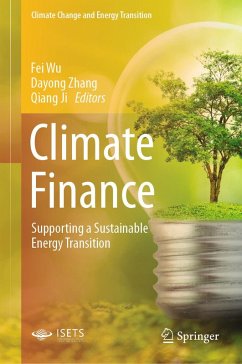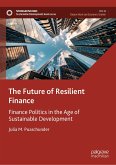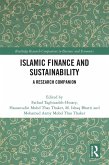Estimated by the International Energy Agency (IEA), trillions dollars of investment in energy sector are needed to achieve net-zero emission scenario. It provides a huge opportunity for our economies, meanwhile creates considerable challenges to the existing system. Both financing and investment in such an unprecedented scale cannot possibly be satisfied by the current financial architecture, which creates demands for restructuring in the financial sector, developing innovative financial instruments, building mechanisms to attract private investment, and establishing human resources to facilitate climate financing and investment. This area is essentially interdisciplinary, which requires a fundamental reconsideration of standard approaches.
Aiming to satisfy the broad interests from both academia and policymakers, the contents of this book range from general discussions on critical issues to advanced statistical analyses on key topics. Authors hope to bring forward a general picture about climate finance and facilitate the demands for both academic research and policymaking. It should also provide a good guidance for graduate students interested in this subject. The main contents of this book are based on solid research outcomes but with clear policy relevance. The book combines finance theory and practices in both financial markets and energy sectors to reflect the complex nature of financing for energy transition. While the materials can provide useful knowledge to policymakers, the book can also inspire new research ideas in the relevant area.
Dieser Download kann aus rechtlichen Gründen nur mit Rechnungsadresse in A, B, BG, CY, CZ, D, DK, EW, E, FIN, F, GR, HR, H, IRL, I, LT, L, LR, M, NL, PL, P, R, S, SLO, SK ausgeliefert werden.









